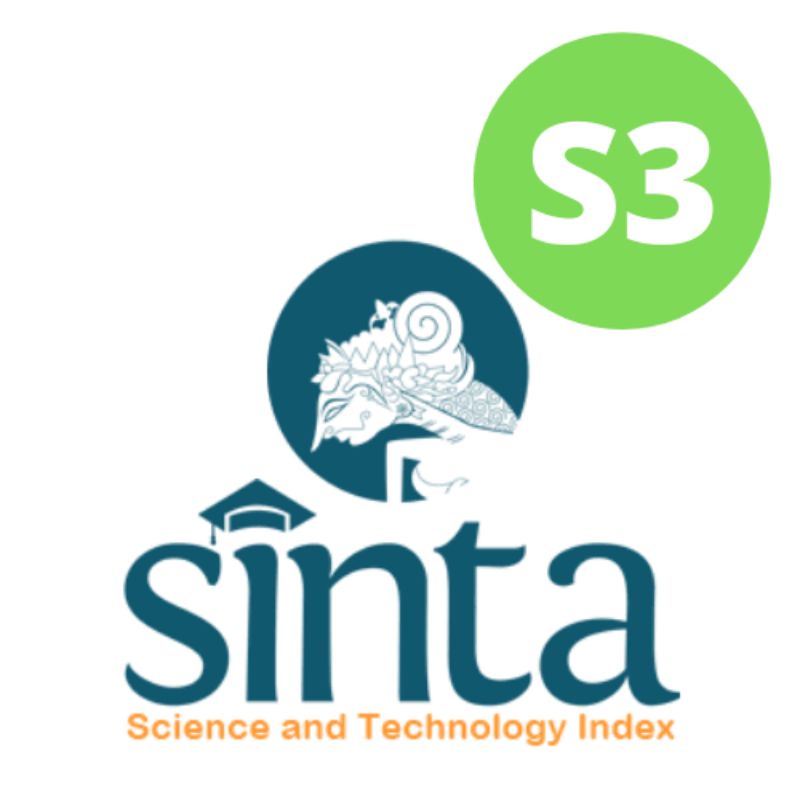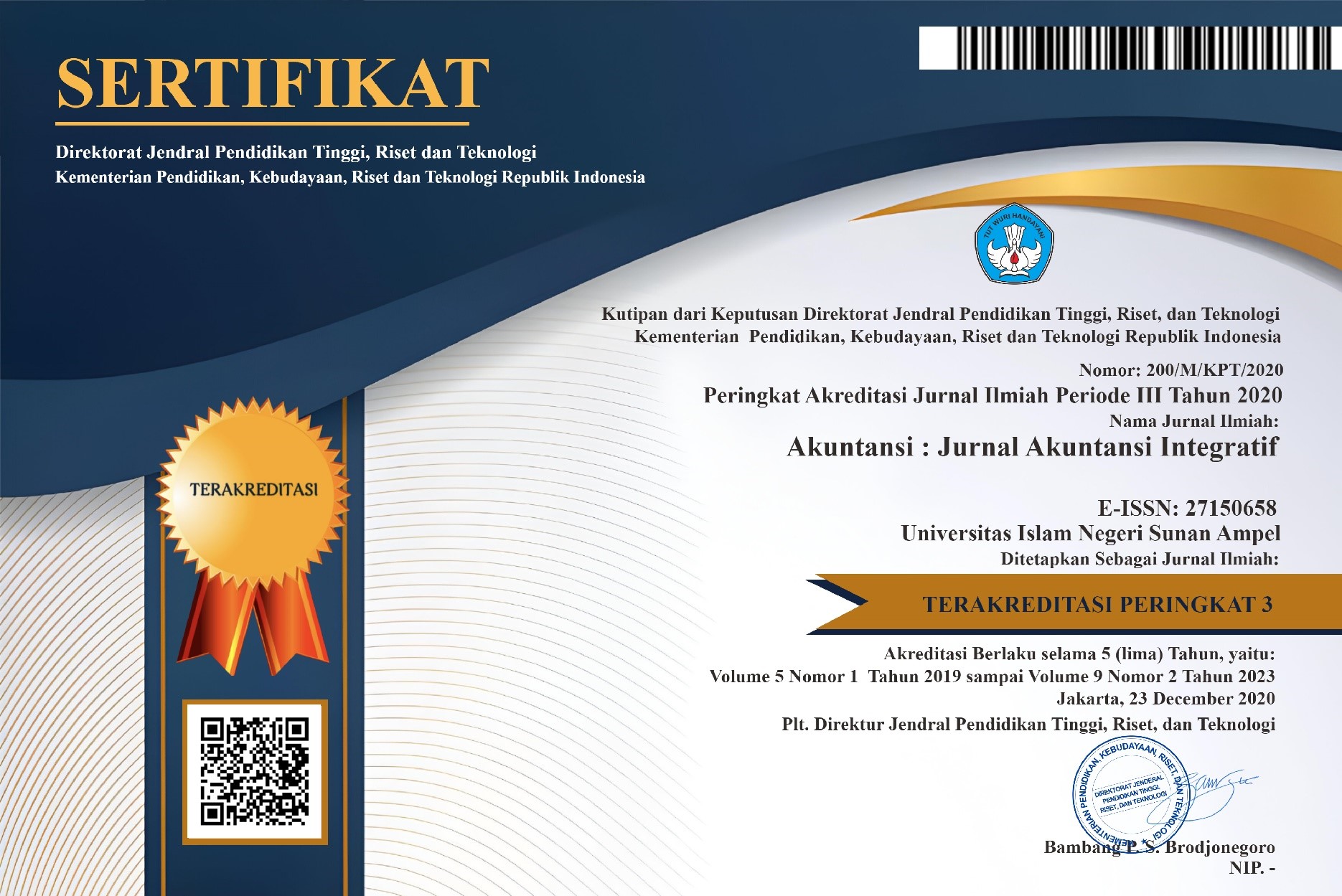Evaluasi Kualitas Pembelajaran Daring, Faktor-Faktor yang Mempengaruhi Kepuasan Mahasiswa dalam Penggunaan Berkelanjutan Sistem Pembelajaran
DOI:
https://doi.org/10.29080/jai.v8i1.740Keywords:
E-Learning, Multidimensional Perspective, Student Satisfaction, Covid-19Abstract
This study analyzes and examines the important factors influencing the sustainable use of e-learning by students in higher education during the COVID-19 pandemic. Currently studies in the field of e-learning focus on the technical aspects of information technology and give limited consideration to social and student-related factors. However, evaluating the critical factors influencing student satisfaction and their intention to use e-learning from a multidimensional perspective can provide an in-depth understanding that can help improve and develop an effective online learning environment. Therefore, this study attempts to provide a validated conceptual framework that integrates social cognitive theory, expectation confirmation theory, and DeLone and McLean's IS success model to analyze the impact of various factors on student satisfaction and their intention to use e-learning during the COVID-19 pandemic. . The sample of this study were students who were given online questionnaires. As a result, there are three hypotheses that are not supported. Neither self-efficacy nor satisfaction affected personal outcome expectations, although previous experience and social influences did show that the COVID-19 pandemic significantly affected students. These findings have practical implications for education developers, policy makers, and practitioners who wish to develop effective strategies for and increase the use of e-learning during COVID-19.
Downloads
References
Aljeraiwi, A., Sawaftah, W. (2018). The quality of blended learning based on the use of blackboard in teaching physics at King Saud University: students’ perceptions. Journal of Educational & Psycho- logical Sciences, 19(2), 616–646.
Alruwaie, M., El-Haddadeh, R., Weerakkody, V. (2020). Citizens’ continuous use of eGovernment ser- vices: the role of self-efficacy, outcome expectations and satisfaction. Government Information Quarterly, 37(3). 101485. https://doi.org/10.1016/j.giq.2020.101485.
DeLone, W. H., McLean, E. R. (1992). Information system success: the quest for dependent variable. Information Systems Research, 3(1), 60–95.
DeLone, W. H., McLean, E. R. (2003). The DeLone and McLean model of information systems success: A ten-year update. Journal of Management Information Systems, 19(4), 9–30.
Fitriani, Y. (2020). Analisa Pemanfaatan Learning Management System (Lms) Sebagai Media Pembelajaran Online Selama Pandemi Covid-19. Journal of Information System, Informatics and Computing, 4(2), 1–8.
Hair, J. F., Hult, G. T. M., Ringle, C. M., Sarstedt, M. (2017). A primer on partial least squares structural equation modeling (PLS-SEM). 2nd. Sage.
Nugroho, Y., Prasetyo, A. (2018). Asessing information systems success: a respecification of the DeLone and McLean model to integrating the perceived quality. Problems and Perspectives in Management. Vol. 16, Issue 1.
Oliver, R. L. (1980). A cognitive model for the antecedents and consequences of satisfaction. Journal of Marketing Research, 17(4), 460–469.
Ohliati, J., Abbas, B. (2019). Measuring students satisfaction in using learning management system. International Journal of Emerging Technologies in Learning, 14(4), 180–189.
Penn, D. L., Corrigan, P. W., Bentall, R. P., Racenstein, J. M., Newman, L. (1997). Social cognition in Schizophrenia. Psychological Bulletin, 121(1), 114–132.
Rahim, R. B. A., & Razak, F. Z. A. (2021). The impact of system quality on satisfaction to use learning management system: E-campus perspective. Journal of Physics: Conference Series, 1793(1). https://doi.org/10.1088/1742- 6596/1793/1/012021
Rhode, J., Richter, S., Gowen, P., Miller, T., & Wills, C. (2017). Understanding faculty use of the learning management system. Online Learning Journal, 21(3), 68–86. https://doi.org/10.24059/olj.v%vi%i. 1217
Rovai, A., Downey, J. (2010). Why some distance education programs fail while others succeed in a global environment. The Internet and Higher Education, 13(3), 141–147.
Wang, Y. S., Wang, H. Y., Shee, D. Y. (2007). Measuring e-learning systems success in an organizational context: scale development and validation. Computers in Human Behavior, 23(4), 1792–1808.
Yang, Y., Li, W., Zhang, Q., Zhang, L., Cheung, T., Xiang, Y. (2020). Mental health services for older adults in China during the COVID-19 outbreak. The Lancet Psychiatry, 7(4), e19.
Downloads
Published
How to Cite
Issue
Section
License
Copyright (c) 2022 Yanuar Nugroho

This work is licensed under a Creative Commons Attribution-ShareAlike 4.0 International License.









